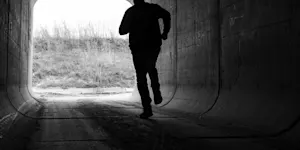What Makes This Word Tick
"Campanile" rings of elegance and history! It's typically a freestanding bell tower associated with churches and cathedrals. These architectural gems often grace the picturesque scenes of Italy and beyond, serving as both a call to worship and a reminder of time's passage. Just imagine strolling through a charming piazza, with the campanile in the background marking the rhythm of life.
If Campanile Were a Person…
Picture an old-world European gentleman, perhaps an art history professor with a penchant for classical music and good espresso. He stands tall and dignified, much like a campanile, with a voice that resonates richly, reminiscent of bells tolling at sunset.
How This Word Has Changed Over Time
In the beginning, campaniles were strictly functional elements of religious architecture. Over time, however, they've become symbols of cultural heritage and architectural beauty. Today, while their literal purpose remains, they also embody local pride and historical significance.
Old Sayings and Proverbs That Use Campanile
While proverbs specifically using "campanile" aren't the norm, the concept echoes in Italian culture, where tradition holds tightly. You might hear an old tale in Tuscany about how the best gelato is found in the shadow of the oldest bell tower—or rather, campanile.
Surprising Facts About Campanile
Did you know that the iconic Leaning Tower of Pisa is actually a campanile? Its famous tilt has drawn visitors for centuries, but it was originally designed to be the bell tower of the Pisa Cathedral—a classic example of how campaniles can also be media darlings!
Out and About With This Word
Next time you're exploring Italy or other parts of Europe, pay close attention to the skyline. That freestanding tower might not just be any old bell tower—it's a campanile, adding a touch of historical charm to every cityscape.
Pop Culture Moments Where Campanile Was Used
While not a star of many movies, bells and their towers often set the scene for dramas and romances across Italy. Picture Audrey Hepburn and Gregory Peck stumbling upon a campanile amidst their Roman holiday, adding gravitas to their nuanced performances.
The Word in Literature
You might find "campanile" in the pages of a novel by Umberto Eco or in the rich descriptions of an E.M. Forster book, painting a vivid picture of another time and place. It's a word that invites readers to envision the spiring heights of historical backdrops.
Moments in History with Campanile
Though not famous for a single historical event, campaniles have stood witness to countless moments. Imagine Venice during its Renaissance glory days, the campaniles seeing the comings and goings of merchants, noblemen, and artists alike.
This Word Around the World
While "campanile" is distinctly Italian, similar structures worldwide—from the bell towers of Prague to the steeples of German churches—carry the same air of timelessness. In some places, "campanario" or "clock tower" might be used, each adding its own cultural twist.
Where Does It Come From?
The word "campanile" originates from the Italian word for "bell," campana. Fitting, since these towers often house the community’s bells. It’s a testament to how language and architecture intertwine so naturally, rooted in practical beginnings.
How People Misuse This Word
The word "campanile" is sometimes mistakenly used to describe any tall tower, even those without bells. Remember, without the melodious chime of bells, it's just not a campanile!
Words It’s Often Confused With
Steeple: Often confused since both are tall and part of a church, but a steeple is usually part of the main building.
Minaret: Though similar in form, minarets serve the call to prayer in Islamic cultures.
Tower: A more general term, while a campanile is specific to bell towers associated with churches.
Additional Synonyms and Antonyms
Synonyms include bell tower, belfry (though a belfry specifically refers to the part of the tower where the bells are). For antonyms, think of non-religious towers or structures designed without the musical intent of a campanile.
Want to Try It Out in a Sentence?
"The sun set behind the ancient campanile, casting long shadows across the cobblestone square as the evening bells began to toll."
















